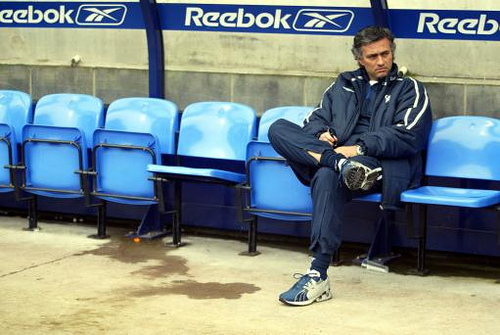“I’m sick of us saying, ‘When are we going to qualify for the World Cup’? [instead of], ‘When are we going to win the World Cup’?” he said. “Call me a dreamer.” – Johnny Warren, 2004
Football is a globalised game, it’s everywhere, and one of its most unique characteristics is that it is played differently in different countries depending on the culture of the country, a ‘glocalisation’ of football. The English style is typically fast and brave, the Italians witty and technical, the Dutch and Spanish, influenced by Johan Cruyff’s ‘Total Football’, play to ‘dominate the ball’ and play as if the ball were a mere extension of the body.
The Australian style is traditionally physical. It’s tough and fierce, it’s that attitude of ‘get a bit of mongrel, get a bit of c**t in ya’. The same values that AFL is grounded in, the same Australian cultural traits of fierce competition and hard work. To be fair this style hasn’t done too badly for football or ‘soccer’ in Australia either. The ‘Socceroos’ have risen to global prominence in the last decade, reaching the second round of the 2006 World Cup before narrowly losing to eventual champions Italy, and players such as Tim Cahill are internationally recognised and well respected.
However, football in Australia has reached a crucial point. The Socceroos have been given stark lessons in technical football recently by Germany in the 2010 World Cup, as well as Asian rivals Japan and South Korea. The ‘Golden Generation’ of Socceroos is nearing its end. Cahill has left the English Premier League for a lucrative deal in America’s MLS, Harry Kewell is without a club after a stint with Melbourne Victory in the A-League, and other great players such as Mark Schwarzer and Lucas Neill are undoubtedly in the twilight of their careers. We can’t rely on the ‘old guard’ for much longer, but with an evident grassroots transformation in the way ‘soccer’ is played and taught in Australia, I think the future of the game in this magnificent sporting country should be quite healthy.
In the example of Barcelona and the Spanish national side, an ever increasing number of footballing nations are joining football’s long term technical revolution by focusing on developing young players the ‘right way’. The English Football Association recently opened a new 105 million pound football academy aimed at long term development. I first felt this trend hit Australia in the summer of 2008, there was far more ball work in training, with an emphasis on good control of the ball and accurate, quick passing. It sounds so simple, but the secret of simple football is that it’s terribly effective. You need only watch Barcelona, the team that has defined this generation of football. All they do is pass, move, receive the ball, pass, move, receive the ball. It’s lethal when done well and at speed. As legendary Liverpool manager Bill Shankly once said, “Football is a simple game based on the giving and taking of passes, of controlling the ball and of making yourself available to receive a pass. It is terribly simple.” When I was 10 years old, I remember training sessions involving tackling, shooting, games and lots of running around. In Australia kids are now being taught how to control the ball and pass properly, with an emphasis on each player having as many touches of the ball as possible during each training session and using both their strong and weak foot. In terms of technical ability, the 10 year olds here are miles ahead of where I was at the same age, they can pass with both their feet competently, whereas at 19 years old my right foot is still a weakness in my game because it wasn’t until age 15 that I was taught to use it by my coaches.
And yet despite all this progress a condescending cultural attitude towards ‘soccer’ still persists in Australia, particularly in the mainstream media. This is despite record numbers of Australian youngsters taking up the world game instead of Aussie Rules. Football in Australia has made remarkable leaps forward in recent years, but it is still fighting a battle to be taken seriously and receive the media recognition that the game deserves. All that and more to come next week in Part 2.
Sources:
http://www.smh.com.au/articles/2004/07/09/1089000355067.html
http://www.liverpoolfc.com/news/latest-news/bill-shankly-in-quotes



